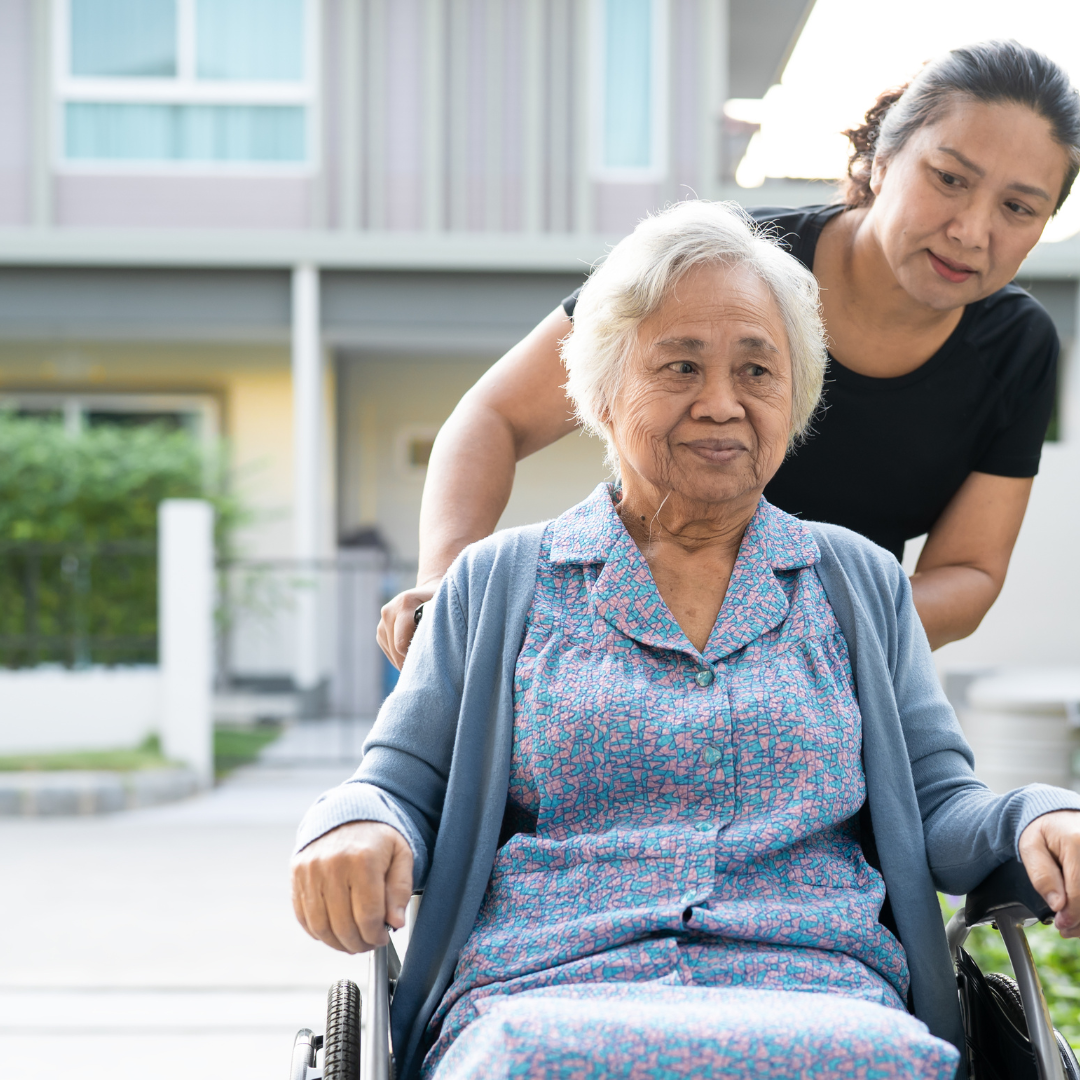Caring for Caregivers: Self-Care Tips and Resources
Being a caregiver is a profoundly rewarding role, but it can also be emotionally and physically demanding. Often, caregivers prioritize the well-being of their loved ones above their own, neglecting their own self-care needs in the process. However, neglecting self-care can lead to burnout and compromised health, ultimately affecting their ability to provide quality care. In this blog post, we delve into the importance of self-care for caregivers and offer practical tips and valuable resources to help them prioritize their own well-being. From simple daily practices to accessing support networks and professional assistance, we aim to empower caregivers with the tools they need to maintain their own health and vitality while fulfilling their caregiving responsibilities. Join us as we explore the essential strategies for caring for the caregivers, ensuring they have the strength and resilience to continue their invaluable work with compassion and dedication.
Understanding the Importance of Self-Care for Caregivers
Caregiving is a noble and selfless endeavor, but it can also take a significant toll on your physical, emotional, and mental health. Constantly tending to the needs of others without taking time to replenish your own resources can lead to burnout, compassion fatigue, and even physical illness. Self-care is not selfish; it's a vital aspect of maintaining your overall well-being so that you can continue to fulfill your caregiving responsibilities effectively.

- Physical Health: Prioritizing self-care means attending to your physical health, which is the foundation of your ability to care for others. This includes getting enough sleep, eating nutritious meals, staying hydrated, and engaging in regular physical activity. Carve out time in your schedule for activities that promote physical well-being, such as going for a walk, practicing yoga, or preparing healthy meals in advance.
- Emotional Well-being: Caring for others can evoke a wide range of emotions, from love and compassion to frustration and sadness. It's essential to acknowledge and process these emotions rather than suppressing them. Practice self-compassion and allow yourself to feel whatever arises without judgment. Seek out emotional support from friends, family members, or support groups who can offer empathy and understanding.
- Mental Health: The constant stress of caregiving can take a toll on your mental health, leading to anxiety, depression, or cognitive decline. Make time for activities that promote relaxation and mental clarity, such as meditation, deep breathing exercises, or journaling. Set boundaries around your caregiving duties to prevent feelings of overwhelm and ensure that you have time for yourself.
- Social Connections: Caregiving can be isolating, especially if you're providing care around the clock. Make an effort to maintain social connections with friends, family members, or peers who understand and appreciate the challenges of caregiving. Schedule regular outings or virtual meetups to stay connected and combat feelings of loneliness or isolation.
- Seeking Help When Needed: Recognize that it's okay to ask for help when you need it. Don't try to shoulder the burden of caregiving alone. Reach out to other family members, friends, or community resources for assistance with caregiving tasks or emotional support. Consider enlisting the help of professional caregivers or respite care services to give yourself much-needed breaks.
As a caregiver, your days are often filled with caring for others, leaving little time for yourself. However, prioritizing your own well-being is essential for maintaining your physical, emotional, and mental health. While it may seem challenging to incorporate self-care into your busy schedule, practicing self-care is vital for preventing burnout and ensuring you can continue to provide the best care possible. In this blog, we'll explore practical self-care activities that busy caregivers can integrate into their daily routine.

Take Short Breaks
Even during hectic days, it's crucial to carve out small moments for yourself. Whether it's a five-minute break to stretch, breathe deeply, or simply sit quietly, these brief pauses can help refresh your mind and renew your energy. Consider setting alarms or reminders throughout the day to prompt yourself to take short breaks.
Practice Deep Breathing Exercises
Deep breathing exercises are a simple yet powerful way to reduce stress and promote relaxation. Take a few minutes several times a day to practice deep breathing exercises. Inhale deeply through your nose, allowing your belly to expand, then exhale slowly through your mouth. Focus on the sensation of your breath as it enters and leaves your body, letting go of tension with each exhale.
Engage in Physical Activity
Finding time for exercise may seem challenging, but even short bursts of physical activity can have significant benefits for your health and well-being. Consider incorporating activities like brisk walks, yoga, or stretching exercises into your daily routine. Physical activity not only improves your physical health but also boosts your mood and reduces stress.
Connect with Supportive Friends or Family Members
Maintaining social connections is essential for caregivers, as it provides emotional support and a sense of belonging. Make time to connect with friends or family members who understand and appreciate the challenges you face as a caregiver. Whether it's a phone call, video chat, or meeting in person, these interactions can help alleviate feelings of isolation and recharge your spirit.
Pursue Hobbies or Interests
Engaging in activities that bring you joy and fulfillment is an important aspect of self-care. Make time for hobbies or interests that you enjoy, whether it's reading, gardening, painting, or playing music. These activities can provide a welcome escape from the demands of caregiving and help you reconnect with your passions and interests.
Creating a Self-Care Plan: A Guide for Caregivers
Caring for a loved one can be deeply rewarding, but it's also undeniably challenging. As a caregiver, it's easy to get caught up in the day-to-day responsibilities of looking after someone else and neglect your own well-being. However, practicing self-care is essential for maintaining your physical, emotional, and mental health. Creating a self-care plan can help you prioritize your needs and ensure that you have the energy and resilience to continue providing quality care to your loved one. Here's a comprehensive guide to help you develop a self-care plan tailored to your unique circumstances.
- Assess Your Needs: Take some time to reflect on your own needs and challenges. What aspects of your life are most affected by caregiving? Are you experiencing physical strain, emotional stress, or social isolation? Identifying your areas of concern will help you develop targeted self-care strategies.
- Set Realistic Goals: Once you've identified your needs, set specific and achievable goals for your self-care. These goals could be related to improving your physical health, managing stress, seeking emotional support, or finding ways to recharge and relax.
- Identify Self-Care Activities: Make a list of self-care activities that you enjoy and that help you feel rejuvenated. These activities could include exercise, meditation, spending time in nature, reading, listening to music, or pursuing hobbies and interests. Choose activities that resonate with you and fit into your schedule.
- Prioritize Self-Care: Recognize that self-care is not selfish; it's essential for your well-being and your ability to provide care for others. Schedule regular self-care activities into your daily or weekly routine, and treat them as non-negotiable appointments.
- Seek Support: Don't hesitate to reach out for support from friends, family members, or support groups. Connecting with others who understand your challenges can provide validation, encouragement, and practical advice. Consider joining a caregiver support group or seeking professional counseling if you're struggling to cope.
Conclusion
Home Matters Caregiving, we recognize the vital role of caregivers in providing compassionate support to their loved ones. Through our dedication to their well-being, we aim to alleviate the burden often associated with caregiving by offering comprehensive self-care tips and resources. By prioritizing self-care, caregivers can maintain their physical and emotional health, enabling them to provide the best possible care. Our commitment to supporting caregivers in Pittsburgh, PA, and beyond extends beyond mere assistance—it's a testament to our belief that by caring for those who care, we can create a stronger, more resilient community. Contact us at (800) 298-5140 to discover how we can support you on your caregiving journey.


